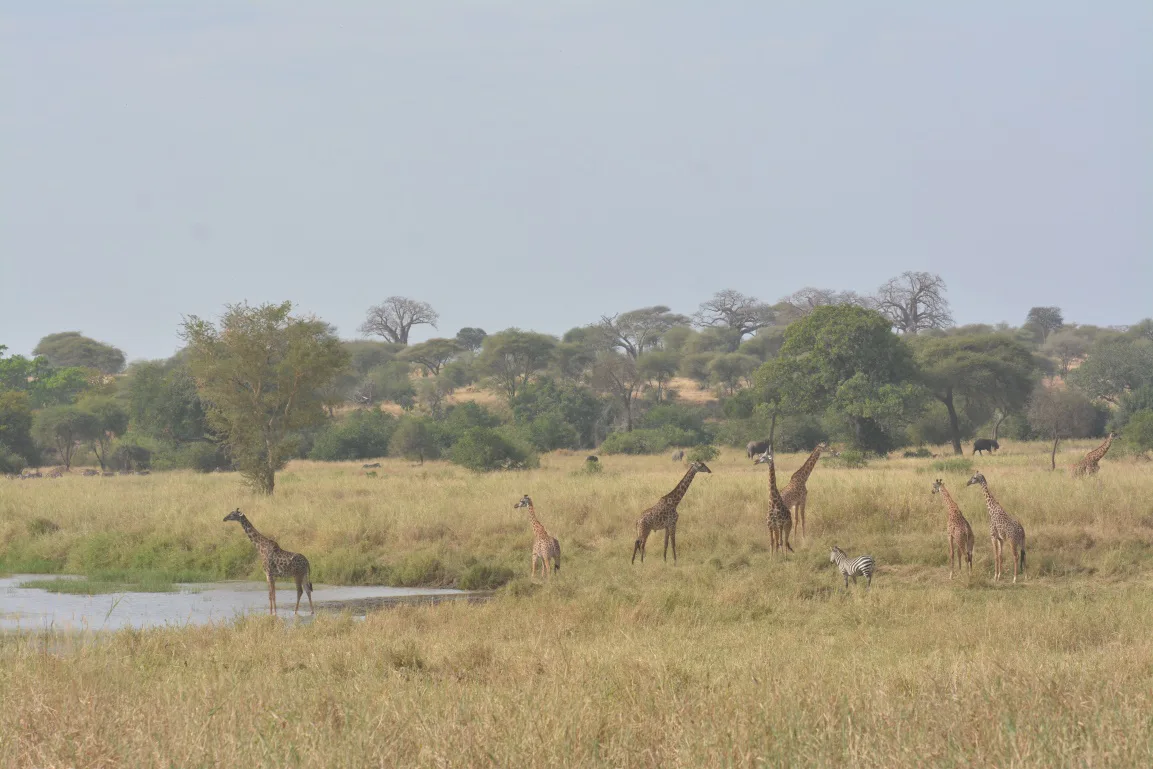Giraffes, Research Proposals, and the Hadzabe People: The SFS Model in Tanzania
Usually about halfway through the semester, students in the Tanzanian Wildlife Management course select their directed research (DR) projects and start writing their research proposals. The DR projects are very diverse, ranging in species from butterflies to elephants and ranging in topics from animal behavioral studies to human perceptions of climate change to wildlife and zoonotic diseases. Using experiences from field exercises, travelling lectures, readings and group discussions, students narrow down their ideas and come up with specific and testable hypotheses that will then be tested in the field.
To have a little break from the work-intensive proposal writing, researchers from the Wild Nature Institute gave a lecture on their exciting giraffe research in the Tarangire-Manyara ecosystem. Students learned a great deal about non-invasive mark-re-sight analysis (researchers from the Wild Nature Institute photograph giraffes and identify them individually based on their unique spot patterns), meta-population dynamics (some areas in the ecosystem are sinks and others are sources for giraffes) and conservation issues of giraffe and other wildlife species in the Tarangire-Manyara ecosystem – topics that are highly relevant for many of this semester’s DR projects.
Recently, we spent a day near Lake Eyasi where Hadza people still maintain parts of their traditional lifestyle. The Hadza people mainly live as hunters and gatherers and are thus highly dependent on the natural resources that nature provides. High dependence on natural resources by the local population is an overarching theme of virtually all DR projects and learning about the Hadza people is particular helpful for those 12 students who will be counting wildlife with Hadza guides in the Yaeda valley during the first week of DR.
The essence of the SFS model is probably best illustrated in this DR process: learning in the field and in class, using this knowledge to formulate key environmental questions, addressing them using field work in and with local communities, and using solid science to find solutions for sustainable co-existence of humans and biodiversity.

Related Posts

Camila Rojas: Alumni Spotlight⭐

